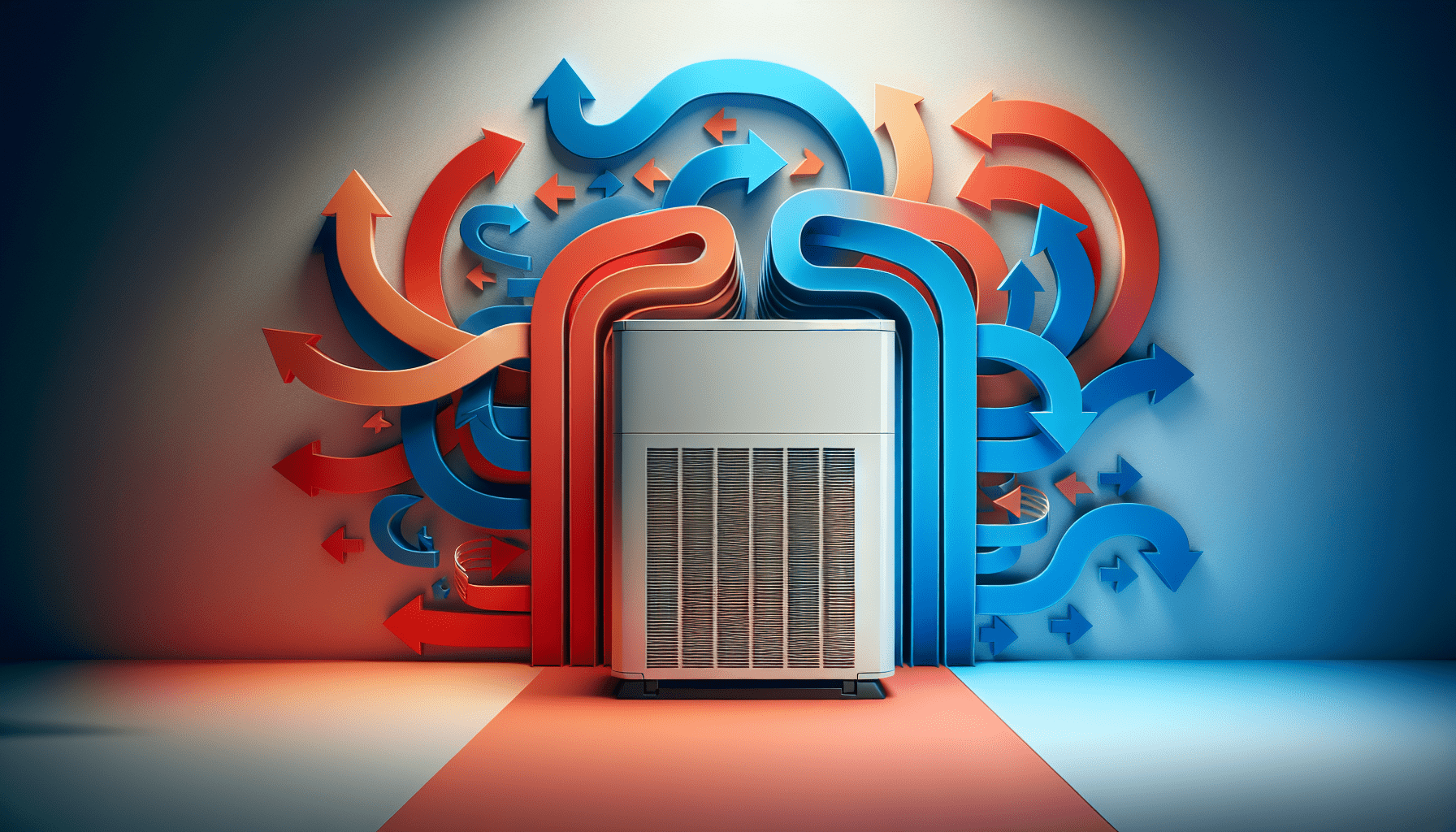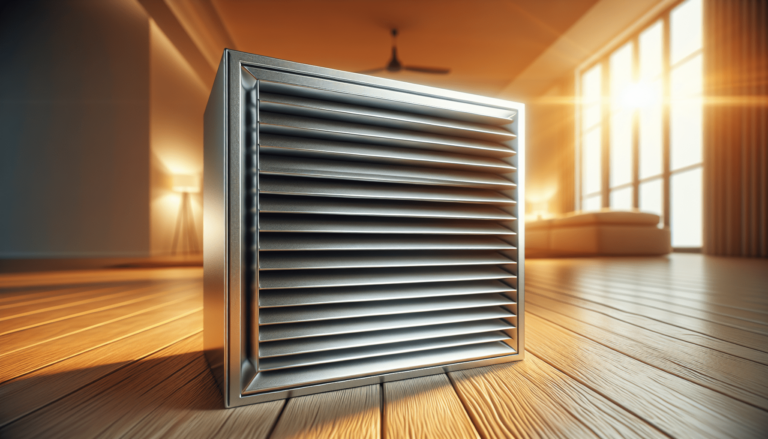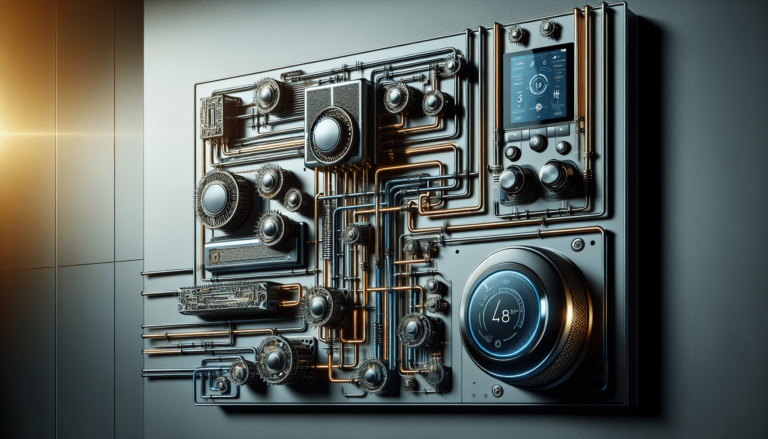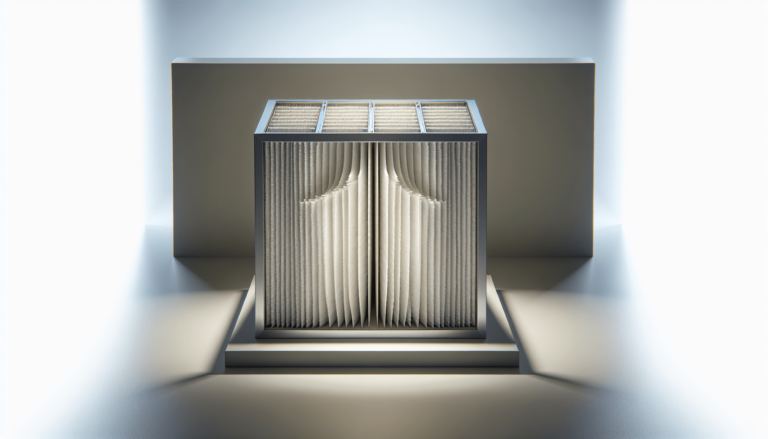

HVAC Services
Get Professional Repairs From The Area's Trusted HVAC Technicians. Ask About Our Services! We Offer Professional Heating & Cooling System Repairs And Guarantee Long-Lasting Results.
Got Question? Call us: (850) 678-2665Financing
Common HVAC Myths Busted: Fact Vs. Fiction
Uncover myths and truths about your HVAC system in our witty guide. Learn how to maximize comfort, efficiency, and savings by debunking common misconceptions.

Have you ever wondered if everything you know about your HVAC system is actually true? It’s quite common to accept various household myths as gospel, and HVAC systems are no exception. While these myths can be quite persistent, they often lead us to make inefficient and sometimes costly decisions. In this article, we will separate fact from fiction and uncover the truth about some widespread HVAC misconceptions.

Myth 1: Closing Vents in Unused Rooms Saves Energy
The Fiction
Many believe that if you close vents in rooms that are not in use, it will direct more air into the rooms you are using, thus saving energy and reducing costs.
The Fact
In reality, closing vents can do more harm than good. Your HVAC system is designed to distribute air evenly throughout your home. Closing off vents can create pressure imbalances which force your system to work harder, potentially leading to duct leaks or wear and tear on the system. It can increase energy consumption rather than decrease it. Instead, consider using zoned heating and cooling solutions that allow for more efficient energy use without jeopardizing the system’s integrity.
Myth 2: Bigger HVAC Systems Are More Effective
The Fiction
A bigger unit promises better temperature regulation and a more consistent climate, right? This myth leads homeowners to invest in oversized units for the extra perceived power and coverage.
The Fact
Oversized systems operate inefficiently. They cycle on and off too frequently rather than running consistently. This can lead to increased wear and tear and reduced system life and efficiency. Properly sizing your HVAC system to your home’s requirements is more effective and efficient. Consulting a professional is a great way to get the right fit—Tempacure Heating and Air Conditioning can help evaluate your home’s needs for optimal comfort and efficiency.
Myth 3: You Only Need to Change Filters Once a Year
The Fiction
It’s easy to believe that filters only need occasional changing, especially when HVAC maintenance is something most people would prefer to put off.
The Fact
Filters should be checked and possibly changed every 1 to 3 months. Dirty filters can restrict airflow, making your system work harder than it needs to, ultimately leading to higher energy bills and potential damage to your HVAC system. Regular replacement of filters ensures better air quality and system efficiency.
Myth 4: Thermostats Only Need Adjustment in Summer and Winter
The Fiction
Adjusting your thermostat only at the height of summer and deep in winter seems logical. What could it possibly affect during mild weather?
The Fact
Regular thermostat adjustments are essential for maintaining an efficient system year-round. Utilizing programmable thermostats can keep your home comfortable during different seasons without manually adjusting. This helps manage energy consumption daily, further reducing costs and minimizing system strain.
Myth 5: HVAC Maintenance Is Unnecessary
The Fiction
Some argue that regular maintenance is a scam or just an upsell from HVAC companies, believing that systems are designed to operate without intervention for extended periods.
The Fact
Regular maintenance, such as the services provided by Tempacure Heating and Air Conditioning, is vital in prolonging the operational life of your HVAC system. Maintenance includes cleaning, inspection, and necessary repairs, which can prevent larger, costlier issues down the line. It also ensures the system operates at peak efficiency, saving on energy costs and improving air quality.
Myth 6: Leaving Your System Running Saves Energy
The Fiction
It’s often thought that maintaining a constant temperature by leaving the system on all day saves more energy than turning it on and off as needed.
The Fact
Allowing your HVAC system to run all day, especially when no one is home, is an inefficient use of energy. Turning the unit off when it’s unneeded, or utilizing a smart thermostat to schedule temperature adjustments, can reduce unneeded energy use and decrease energy bills, as your system is not working to cool an empty home.
Myth 7: All HVAC Systems Have the Same Efficiency
The Fiction
A broad belief is that most HVAC systems on the market are fairly uniform when it comes to effectiveness and efficiency.
The Fact
Efficiency ratings, such as SEER (Seasonal Energy Efficiency Ratio) for air conditioners or AFUE (Annual Fuel Utilization Efficiency) for heat pumps, measure how efficiently a unit operates. Higher ratings mean more energy savings. Different models and brands have significant variances in efficiency, and choosing a high-efficiency model can result in long-term savings on your energy bills. Consulting with experts at Tempacure can help you choose the best model for your home’s specific needs.
Myth 8: It’s Normal for Rooms to Vary in Temperature
The Fiction
It’s expected that different rooms in a home will naturally be at different temperatures.
The Fact
While slight temperature variations are normal, significant differences can signal issues such as poor ductwork, leaked air, or insulation problems. Identifying and addressing these issues can often resolve the discomfort and lead to a more evenly heated or cooled home. Zoning systems and thorough maintenance can also help ensure a consistent temperature throughout the home.

Myth 9: Air Conditioning Alone Dehumidifies the Air
The Fiction
Because air conditioning cools your home, it’s often believed that this process also adequately dehumidifies the home.
The Fact
While air conditioners remove some humidity as a byproduct, they’re generally not effective dehumidifiers. If humidity is a significant concern, a dedicated dehumidifier might be necessary to maintain optimal comfort levels, particularly in humid climates. Tempacure can offer advice on integrated solutions to manage both temperature and humidity.
Myth 10: Running Ceiling Fans Cools the Room
The Fiction
Ceiling fans, much like small cooling systems, are thought to actually lower the room’s temperature when they’re running.
The Fact
Ceiling fans do not lower air temperature—they circulate air to create a wind-chill effect. Fans make your skin feel cooler without actually reducing room temperature. It’s economical to turn off ceiling fans when a room is unoccupied to save on electricity.
Myth 11: Newer Homes Don’t Need HVAC Upgrades
The Fiction
Modern homes often come with the latest construction technology, so many assume that HVAC upgrades or replacements are unnecessary.
The Fact
HVAC technology improves over time, and even new homes might have systems that aren’t optimized for efficiency or cost-effectiveness. As energy standards become more stringent and technology advances, investing in an upgraded system can often offer improved efficiency and lower operational costs. Custom consultations with experts can provide recommendations tailored to specific needs, like those offered at Tempacure.
Myth 12: Leaving HVAC Issues Until They Cause Problems is Fine
The Fiction
If an HVAC system is running without too much trouble, waiting for issues to become more apparent before attending to repairs seems reasonable.
The Fact
Ignoring minor issues can lead to major repairs and costly damages. Regular inspections can preempt problems such as wear and tear, refrigerant leaks, or failing parts before they escalate into larger, more expensive issues. Investing in regular check-ups is part of sustainable home maintenance, keeping your unit running smoothly year-round.
Understanding the Reality of HVAC Myths
Cleaning Ducts Improves Air Quality
Another common misconception is that cleaning the ducts will vastly improve your home’s air quality. While there might be a slight benefit, the better approach is ensuring that the source of air (filters, coils) is clean to start with. Investing in high-quality filters and regular maintenance will hold more benefits than occasionally cleaning ducts.
Two-Stage Cooling Systems
Consideration for innovative HVAC solutions like two-stage cooling systems can address comfort levels more efficiently than single-stage systems. Two-stage systems operate at a lower setting for optimal energy efficiency and comfort, only switching to a higher mode when necessary, thus extending equipment life and saving energy.
Myth 13: You Can Install an HVAC System Yourself
The Fiction
With numerous online tutorials and videos, DIY installation of an HVAC system might seem feasible.
The Fact
Attempting to install an HVAC system by oneself can be exceedingly dangerous and lead to improper installation, voided warranties, and hazardous conditions, such as carbon monoxide leaks or electrical fires. It is best to rely on professional installation services to ensure safety and compliance with local codes. Tempacure’s trained professionals have the expertise necessary to execute a safe and efficient installation.
Myth 14: Regular Temperature Swings Are Harmful to Your System
The Fiction
There’s a belief that raising or lowering the thermostat frequently harms your system.
The Fact
Adjusting the thermostat regularly doesn’t inherently damage your system. Modern HVAC systems are designed to handle fluctuations in demand. However, drastic swings should be strategic to save energy without compromising comfort or causing unnecessary strain.
Conclusion
Discerning fact from fiction around HVAC systems can significantly impact your comfort, energy consumption, and savings. Understanding these common myths enables better decisions regarding HVAC maintenance and investment, optimizing home comfort efficiently. Consulting dedicated professionals like those at Tempacure Heating and Air Conditioning is an excellent step toward enhancing your home’s HVAC system and ruling out prevailing misconceptions. Consider this as a guide towards sustainable HVAC practices for your home.
For more tailored recommendations and services, engaging with knowledgeable experts remains invaluable. Whether it’s through regular maintenance, upgrading to more efficient systems, or selecting the right size for your home, informed choices regarding your HVAC setup significantly influence long-term comfort and operational costs.







